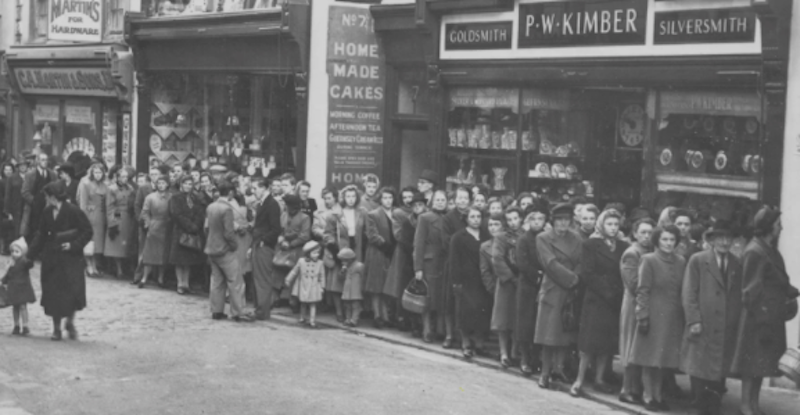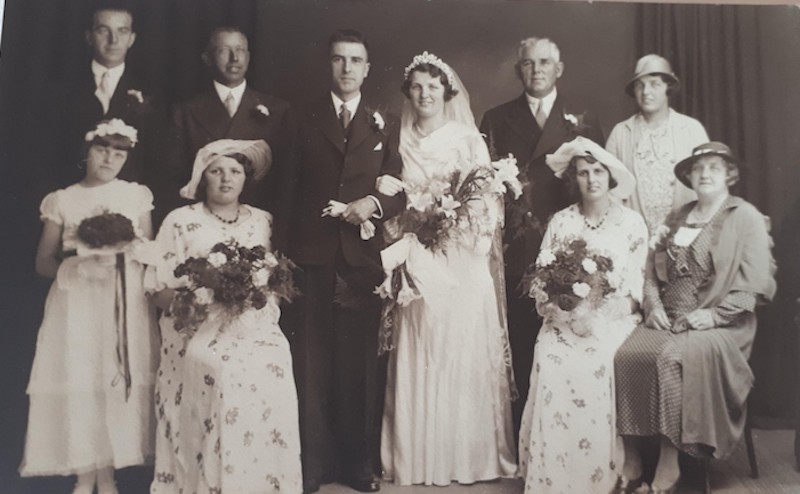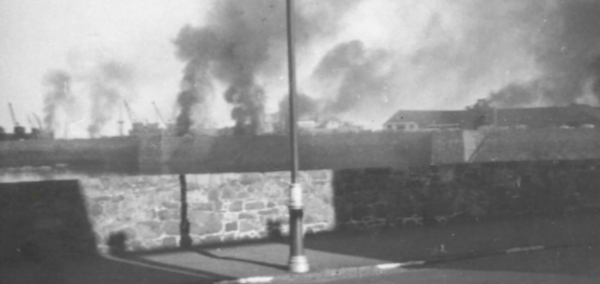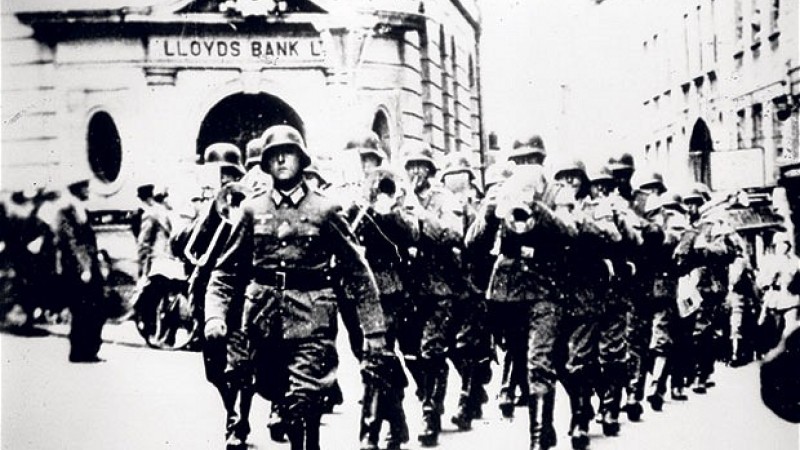


A tale of confusion and fear, told with humour and love. In her own words, Irene Rose wrote down what it was like to be in her 20s, living and working in the island during the early years of Guernsey's Occupation. Her diary entries were given to Express to publish this week as we approach the 75th anniversary of the Liberation...
"I am often asked what life was like during the German Occupation of Guernsey.
There are so many books that have been written but these are my memories and my reflections. One book, ‘A Child’s Occupation’ seems like a completely different war to me as only a few children were left on the island and they were protected as much as possible.
When war was declared we had a garrison of the Royal Irish Regiment stationed at Fort George. Life was fun, with dances and entertainment. We served meals at the Toc H and generally helped entertain the troops with sing-songs etc.

Pictured: The Rose family - Rene is third from the right.
However, with the news of the Germans reaching Paris, the Royal Irish Regiment left overnight and the States of Guernsey decided to evacuate all the school children who were only allowed hand luggage. The youngest child to leave was only a few months old.
There were many heartbroken parents left behind as space on the ships was limited. There was a lot of panic as many people desired to get off the island but we only had two or three mail boats, which were very crowded.
My eldest sister, Ivy and her daughter, Jean were evacuated and my youngest sister, Mary went with her school to Scotland. My other two sisters had left the island earlier, Kitty being a nurse in Newbury and Alice marrying and moving to Bristol. Ivy and Jean went to Bristol and later - Mary was lucky enough to join them.
So many people decided to evacuate that an order was issued to all inhabitants to assemble in the High Street at 17:00 when the Bailiff would speak to them. Then it was officially stated that the troops had all been evacuated overnight and we were now an ‘open town.’ They had big placards saying 'Do not be yellow – remain in your homeland and the British will protect us'.
No sooner had the Bailiff finished his speech than the Germans came over and bombed the harbour. We had no protection - only the mail boat in the harbour had a gun. The Captain was shopping in the town but he risked his life and borrowed a cycle and did a wonderful job of firing at the Germans!

Pictured: The bomb raid at the White Rock (image from visitguernsey.com courtesy of the Priaulx Library & Occupation Archive).
Even so, 34 people died and 33 people were injured. Many had tried to get under their tomato lorries for protection but these were bombed and some caught fire.
Assuring myself that my mother was safe and my father was at the meeting in the High Street, I quickly went to our Red Cross Post - a large hall - to help with the injured. We put all our theory into practice only to discover the doctor was having great difficulty in helping people as the lights were so high and nobody had thought to bring a torch. So much for theory and the real thing!
The following day - a Sunday - the Germans landed. They simply flew low over the airport and dropped a revolver with white ribbon attached – this evidently meant that they had come in peace.
Being defenceless as we were, we simply had to accept it. Within the next few days, some local fishermen who knew the coast well took a chance and managed to get to England. My brother-in-law escaped this way.
Despair of the unknown was terrible – all the news of the atrocities committed in countries which had been occupied passed through our minds. I decided never to go out. But, life had to go on and the next morning I went down to my place of business.

Pictured: The Occupation of Guernsey.
When I arrived, two Germans were standing by the door – they must have seen the look of horror on my face – one smiled and said, “I beg your pardon, am I in your way?”. That was not what I had expected! Afterwards we realised that the first troops were specially picked as most of them were either Americans or Canadians who were on holiday when war was declared and had to remain in the German Army.
The Germans had forgotten to bring a Swastika flag and so a dressmaker had to make one for them. She said she never knew how she got it finished as she cried so much. I sincerely hope that you will never know the anguish of having the Union Jack lowered, not knowing when it would be flown again, and a Swastika flag unfurled in its place.
We were now under German, not British rule."
Rene's story will continue on Express throughout the week...
To read more about Rene herself click HERE.
Pictured top: Image from visitguernsey.com courtesy of the Occupation Archive.
Comments
Comments on this story express the views of the commentator only, not Bailiwick Publishing. We are unable to guarantee the accuracy of any of those comments.